 W
WThe National Intelligence Distinguished Service Medal (NIDSM) is a decoration awarded for service to the United States Intelligence Community. The decoration is awarded to any member or contributor to the National Intelligence Community, either civilian or military, who distinguishes themselves by meritorious actions to the betterment of national security in the United States of America, through sustained and selfless service of the highest order.
 W
WJames Blackburn Adams was an American attorney, politician, and two-time associate director of the Federal Bureau of Investigation.
 W
WKeith Brian Alexander is a retired four-star general of the United States Army, who served as director of the National Security Agency (DIRNSA), chief of the Central Security Service (CHCSS), and commander of the United States Cyber Command. He previously served as Deputy Chief of Staff, G-2, United States Army from 2003 to 2005. He assumed the positions of Director of the National Security Agency and Chief of the Central Security Service on August 1, 2005, and the additional duties as Commander United States Cyber Command on May 21, 2010.
 W
WCharles E. Allen is an American public servant, notable for his roles at the United States Department of Homeland Security's Office of Intelligence and Analysis and, before that, the Central Intelligence Agency.
 W
WLew Allen, Jr. was a United States Air Force four-star general who served as the tenth Chief of Staff of the United States Air Force. As chief of staff, Allen served as the senior uniformed Air Force officer responsible for the organization, training, and equipping of 750,000 active duty Air Force, Air National Guard, Air Force Reserve, and civilian personnel serving in the United States and overseas. As a member of the Joint Chiefs of Staff, he and the other service chiefs function(ed) as the military advisers to the Secretary of Defense, the National Security Council, and the President.
 W
WJoseph Cofer Black is a former CIA official who was appointed Ambassador-at-Large and Coordinator for Counterterrorism by President George W. Bush and led the Office of Counterterrorism in the U.S. State Department until his resignation in 2004. Previously Black served in the Directorate of Operations at the Central Intelligence Agency (CIA) and Director of the CIA's Counterterrorist Center (CTC).
 W
WDennis Cutler Blair is the former United States Director of National Intelligence and is a retired United States Navy admiral who was the commander of U.S. forces in the Pacific region. Blair was a career officer in the U.S. Navy and served in the White House during the presidencies of both President Jimmy Carter and President Ronald Reagan. Blair retired from the Navy in 2002 as an Admiral. In 2009, Blair was selected as President Barack Obama’s first Director of National Intelligence, but after a series of bureaucratic battles, he resigned on May 20, 2010.
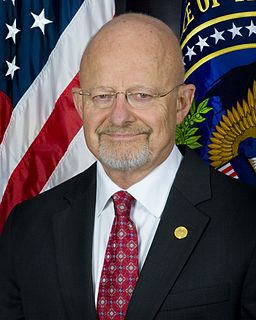 W
WJames Robert Clapper Jr. is a retired lieutenant general in the United States Air Force and is the former Director of National Intelligence. Clapper has held several key positions within the United States Intelligence Community. He served as director of the Defense Intelligence Agency (DIA) from 1992 until 1995. He was the first director of defense intelligence within the Office of the Director of National Intelligence and simultaneously the Under Secretary of Defense for Intelligence. He served as the director of the National Geospatial-Intelligence Agency (NGA) from September 2001 until June 2006.
 W
WLarry Ed Combest is a retired American Republican politician who represented Texas in the U.S. House of Representatives from 1985 to 2003.
 W
WRobert Williams Daniel, Jr. was a Virginia farmer, businessman, teacher, and politician who served five terms in the U.S. House of Representatives as a Republican. He was first elected in 1972 and served until 1983.
 W
WMichael H. Decker was the Assistant to the Secretary of Defense for Intelligence Oversight. from September 2009 to February 2014. Before that he was Assistant Director of Intelligence, Marine Corps Intelligence, United States Marine Corps. He served as Director of Intelligence during Operation Iraqi Freedom II from January 2004 to June 2005.
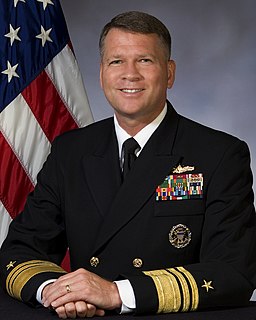 W
WDavid John "Jack" Dorsett is a corporate vice president for cyber and C4 at Northrop Grumman, and a retired vice admiral of the U.S. Navy. He was the first Deputy Chief of Naval Operations for Information Dominance and 63rd Director of Naval Intelligence. He served as the Director of Intelligence, Joint Chiefs of Staff from 2005 to 2008 prior to assuming his position on the Chief of Naval Operations staff.
 W
WRobert Edwin Drake was an American intelligence official who was Deputy Director of the National Security Agency from 1978 to 1980 during which time he was the highest ranking civilian in the agency.
 W
WMartin C. Faga was the tenth Director of the National Reconnaissance Office (DNRO).
 W
WRobert Michael Gates is an American intelligence analyst, and university president who served as the 22nd United States Secretary of Defense from 2006 to 2011. He was originally appointed by President George W. Bush and was retained for service by President Barack Obama. Gates began his career serving as an officer in the United States Air Force but was quickly recruited by the Central Intelligence Agency (CIA). Gates served for 26 years in the CIA and the National Security Council, and was Director of Central Intelligence under President George H. W. Bush. After leaving the CIA, Gates became president of Texas A&M University and was a member of several corporate boards. Gates served as a member of the Iraq Study Group, the bipartisan commission co-chaired by James A. Baker III and Lee H. Hamilton, that studied the lessons of the Iraq War.
 W
WMichael William Hagee is a retired United States Marine Corps four-star general who served as the 33rd Commandant of the Marine Corps from 2003 to 2006, succeeding General James L. Jones on January 13, 2003. He stepped down as Commandant two months before the end of his four-year term, and was succeeded by General James T. Conway on November 13, 2006. On that date, Hagee had his retirement ceremony just prior to the passage of command ceremony. Hagee retired from the Marine Corps on January 1, 2007.
 W
WJeffrey K. Harris is an American aerospace executive who served as 11th director of the National Reconnaissance Office from 1994 to 1996. He is currently the chairman of the board of the United States Geospatial Intelligence Foundation.
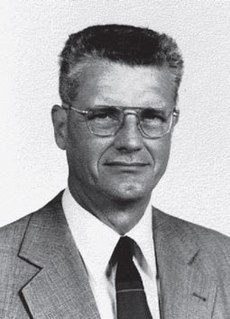 W
WRutledge Parker "Hap" Hazzard was director of Science and Technology division of Central Intelligence Agency (CIA) from 1973 to 1978. He became director of the National Photographic Interpretation Center (NPIC) in 1978. After serving six years as director of NPIC from June 1978 to February 1984, Hazzard returned to the CIA's National Intelligence Office. He retired from public service in 1985.
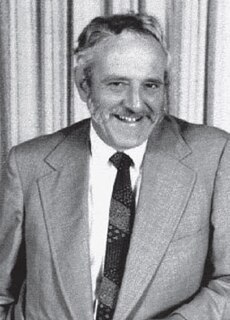 W
WJohn J. Hicks was second director of National Photographic Interpretation Center (NPIC). Hicks was appointed as the Director of NPIC in July 1973, after retirement of Arthur C. Lundahl, first director of NPIC. He served as the Director of NPIC from July 1973 to May 1978.
 W
WRobert M. Huffstutler was director of National Photographic Interpretation Center from February 1984 to January 1988.
 W
WPatrick M. Hughes is a retired United States Army officer who served as the 12th Director of the Defense Intelligence Agency (DIA). Previously, he was Director of Intelligence for the US Joint Chiefs of Staff from 1994 to 1996 and the Director of Intelligence at United States Central Command from 1992–1994. He was the Commanding General, United States Army Intelligence Agency, and the Assistant Deputy Chief of Staff for Intelligence, U.S. Army from 1990 until 1992. He joined the United States Department of Homeland Security in 2003 as the Assistant Secretary for Information Analysis (Intelligence), and departed from DHS and Government service in March 2005.
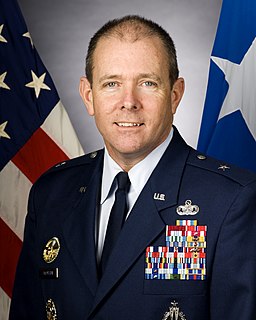 W
WKevin J. Jacobsen is a retired United States Air Force Brigadier General who served as the 16th Commander of the Air Force Office of Special Investigations (AFOSI), Quantico, VA. This field operating agency is responsible for providing commanders of U.S. Air Force activities independent, professional investigative services regarding fraud, counterintelligence, and major criminal matters. The investigations are conducted by a worldwide network of military and civilian special agents stationed at major U.S. Air Force installations and a variety of special operating locations.
 W
WVice Admiral Lowell Edwin Jacoby, USN was the 14th director of the Defense Intelligence Agency. Previously he was Director for Intelligence (J-2) Joint Staff in the Office of the Chairman of the Joint Chiefs of Staff from 1999 to 2002, and the Director of Naval Intelligence and commander, Office of Naval Intelligence from 1997 to 1999. He was the Director for Intelligence, U.S. Pacific Command from 1994 to 1997 and Commander, Joint Intelligence Center, Pacific from 1992 to 1994. He was Assistant Chief of Staff, Intelligence, U.S. Pacific Fleet from 1990 to 1992.
 W
WJames Logan Jones Jr. is a retired United States Marine Corps four-star general who served as the 22nd United States National Security Advisor from 2009 to 2010. During his military career, he served as the 32nd Commandant of the Marine Corps from July 1999 to January 2003, and Commander, United States European Command and Supreme Allied Commander Europe from 2003 to 2006. Jones retired from the Marine Corps on February 1, 2007, after 40 years of service.
 W
WMark M. Lowenthal is an author and Adjunct Professor at the Krieger School of Arts and Sciences at Johns Hopkins University in Washington, D.C. He has written five books and over 90 articles or studies on intelligence and national security. His book Intelligence: From Secrets to Policy has become a standard undergraduate and graduate text.
 W
WL. Roger Mason Jr. is a former Assistant Director of National Intelligence for Systems and Resource Analyses.
 W
WJohn Michael McConnell is a former vice admiral in the United States Navy. During his naval career he served as Director of the National Security Agency from 1992 to 1996. His civilian career includes serving as the United States Director of National Intelligence from 20 February 2007 to 27 January 2009 during the Bush administration and seven days of the Obama administration. He is currently Vice Chairman at Booz Allen Hamilton.
 W
WBarbara A. McNamara was the NSA's Deputy Director from October 1997 until June 2000. She was succeeded by William B. Black, Jr..
 W
WRichard Willard Mies is a retired United States Navy admiral who served as the fourth Commander in Chief of United States Strategic Command from 1998 to 2001.
 W
WKenneth A. Minihan is a former United States Air Force lieutenant general who served as the director of the National Security Agency and the Defense Intelligence Agency, retiring on May 1, 1999.
 W
WThomas Samuel Moorman Jr. was a United States Air Force officer who served as Vice Chief of Staff of the United States Air Force from July 1994 to August 1997.
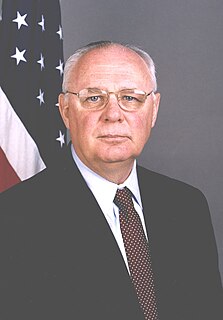 W
WJames W. Pardew is an American diplomat, international negotiator, military officer, and former United States Ambassador to Bulgaria. After serving as a military intelligence officer in the United States Army for 28 years, Pardew entered the arena of international diplomacy with a heavy focus on the Balkans, where he was instrumental in coordinating agreements and peace resolutions, as well as heading major State Department programs such as the Bosnian Train-and-equip program.
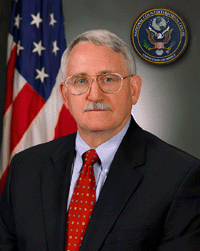 W
WJohn Scott Redd was a vice admiral of the United States Navy, and afterward the first Senate-confirmed Director of the National Counterterrorism Center, serving from 2005 until 2007. According to David Martin at the CBS Evening News, "Scott Redd may be the most important person you've never heard of." J.J. Green at Federal News Radio referred to Redd as "the man that I often call "E.F. Hutton". He is also the past President of the Naval Academy Class of 1966 and has served on the advisory boards of several non-profit organizations. An avid amateur radio operator, Redd has won twelve world championships and nine national championships.
 W
WWarren Bruce Rudman was an American attorney and Republican politician who served as United States Senator from New Hampshire between 1980 and 1993. He was known as a moderate centrist, to such an extent that President Clinton approached him in 1994 about replacing departing Treasury Secretary Lloyd Bentsen in Clinton's cabinet, an offer that Rudman declined.
 W
WFrancis Xavier Taylor was the Under Secretary of Homeland Security for Intelligence and Analysis at the U.S. Department of Homeland Security (DHS), nominated by President Obama in 2014. In that role, he provided the Secretary, DHS senior leadership, the DHS components, and state, local, tribal and private sector partners with homeland security intelligence and information they need to keep the country safe, secure and resilient. DHS Office of Intelligence and Analysis is a member of, and the Department’s liaison to, the U.S. Intelligence Community.
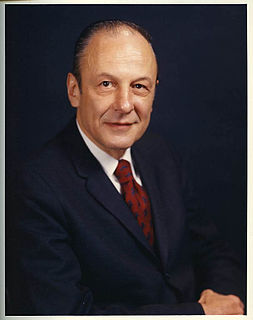 W
WLouis William Tordella was the longest serving deputy director of the National Security Agency.
 W
WJeffrey Steven White is a United States District Judge of the United States District Court for the Northern District of California.
 W
WJames A. Williams was a United States Army lieutenant general. Williams served as Director of the Defense Intelligence Agency in the 1980s. He was a 1987 inductee of the Military Intelligence Hall of Fame and was the chairman of the board of directors for the National Military Intelligence Association.
 W
WThomas Ray Wilson is a retired United States Navy vice admiral. He previously served as Director of the Defense Intelligence Agency from July 1999 to July 2002.